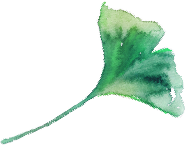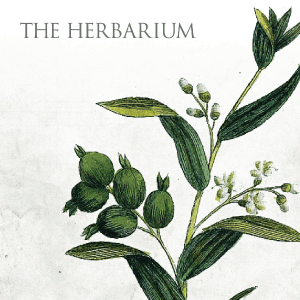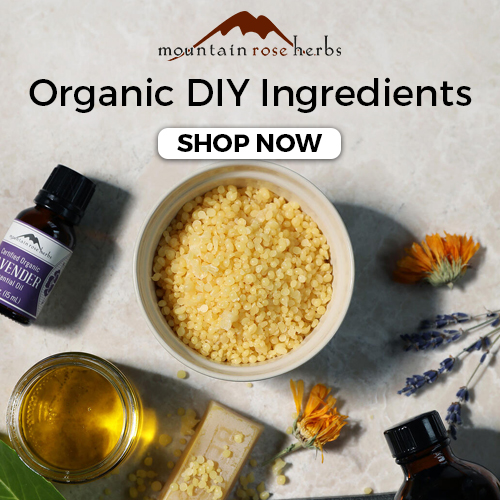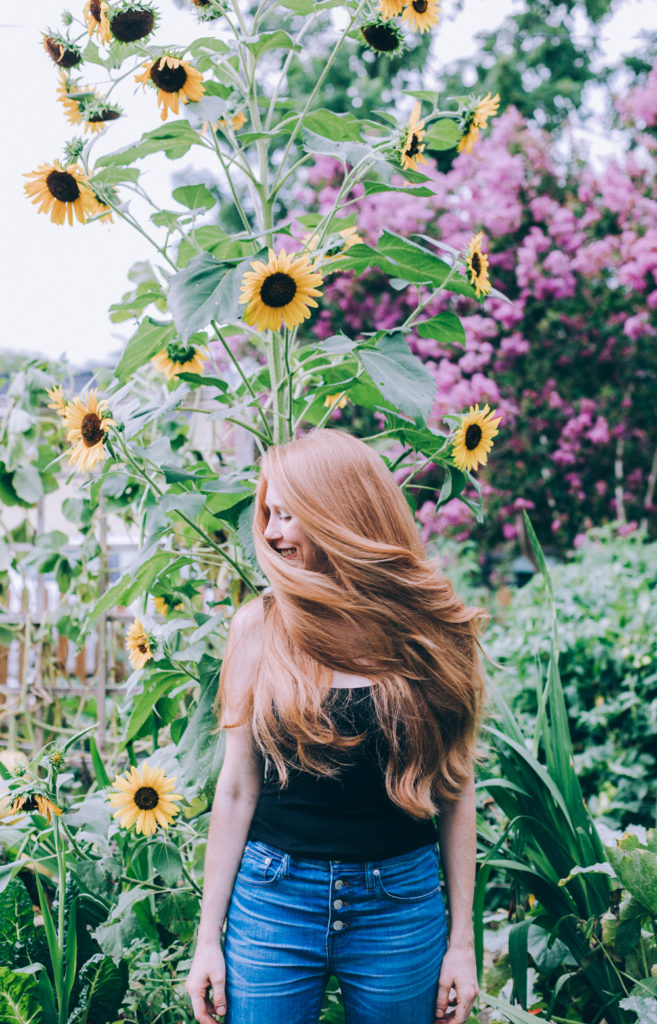
I’ve kept my hair long for about 18 years now, with the occasional drastic chop and donation. When I was 12 years old, the movie Practical Magic came out and since the moment I first saw it, Nicole Kidman gave me forever hair goals (and I still to this day am desperate to get her epic layered haircut, but alas, have never found someone who can do it just right). Other than the subtle witchy vibe, keeping my hair long gave me a sense of individuality, of femininity…of inner elfishness like I just stepped out of Lothlorien treehouse heaven. It’s my bit of consistent style and whimsey in a totally fleeting fashion-fad absorbed world. My hair grows like a weed, and the upkeep can sometimes feel tedious. A long time ago I committed to only using minimal, botanical based products and the least amount of effort and styling tools possible. Eventually I learned that the less I do to my hair, the better it feels and healthier it stays. Botanical infused hair oils (and good nutrition – more on that here!) are my not so secret allies for maintaining long, strong locks.
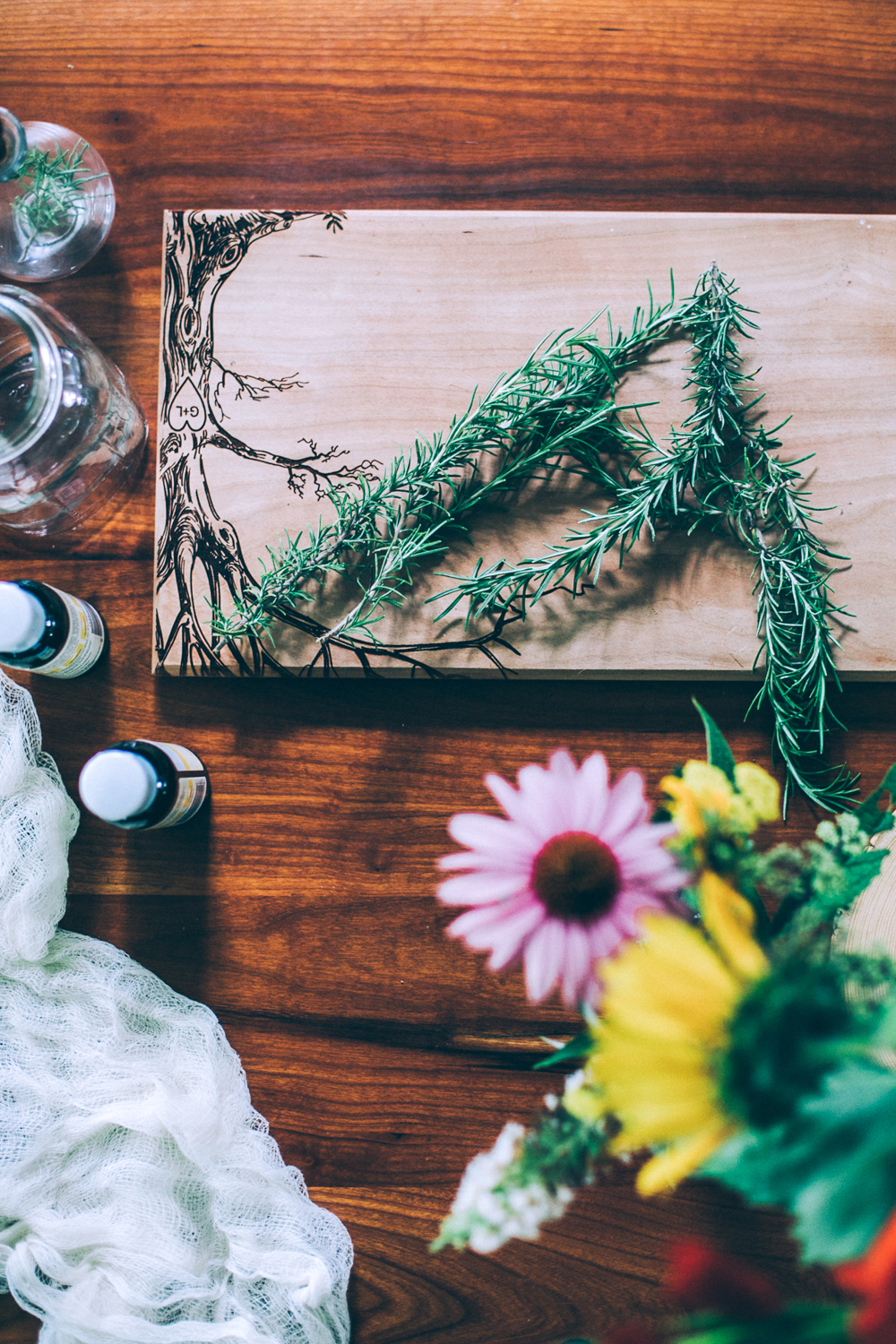
I started using botanical infused hair oils years ago and it was hard to find ones that didn’t have sketchy ingredients in them. Over the past three or four years I’ve been making and using my own hair oil at least twice a week as I’ve been growing my hair longer and longer. I also use a lot of hair oil…so keeping it inexpensive to make was important. Herbal goodness doesn’t just stop with the internal application of teas and tinctures. Herbal and botanical body care items are absolute magic for harnessing the power of herbs topically. This botanical infused hair oil is what I would consider 1/2 of what contributes to long, strong locks. The other half is good nutrition, and I’ll cover that in another post. And, obviously, there’s the genetic factor (thanks, mom and dad). I slather my hair and massage my scalp with this oil twice a week, sleep with it in overnight, then wash my hair in the morning (and I only wash my hair about twice a week). I let my hair air dry as much as possible and rarely ever use any product in it after I wash it. Humidity, however, is a gross and unrelenting hair adversary. In the summer, I’ll give my hair a spritz of sea salt spray or use my aloe sun soothing spray on the ends…but that’s about it. Humidity generally always wins.
Read more: Nutrition & Herbs for Long Strong Locks
Herb for Healthy Hair
My go-to herbal allies for hair are Nettle (shocker), rosemary, aloe and coconut + jojoba oil.
Nettle (Utica dioica) is so nutrient dense, being extremely high in calcium, phosphorus, magnesium, iron and zinc – dietarily making it one of the most mineral dense plant foods we can consume. Nettle also has a rich content of two fat soluble vitamins, vitamin A and carotenoids (the pre-cursor to vitamin A), and vitamin K. B vitamins are also tucked away in those nutrient dense stinging leaves too. These are all vitamins and minerals we need in the right proportions in our diet to maintain overall health as well (and I’ll dive into that later on). When I utilize herbs for hair health, like nettle, I’m using these vitamins and minerals on my scalp and also on the strands to help repair damage, split ends, and soothe the texture of the strands. Nettle supports both the hair follicles and hair strands. Rosemary I use specifically for the circulatory and oxygenation of hair follicles on the scalp – hence the good scalp massage part of the hair oil ritual.
Aloe I include for it’s soothing and repairing quality on hair strands. Have you ever used aloe topically on your skin? Works just as good in your hair too! Aloe is also super nutrient dense with some of the same nutrients that nettle carries and then some. Rich in Vitamins A, C, B12, niacin and folic acid, the inner gel also packs in calcium, magnesium zinc and iron. The fresh gel is so soothing and moistening for dry scalps, infusing the skin with nutrients and is cooling and soothing for itchy or flaky skin and just coats the hair strands in glycoproteins and nutrients. I absolutely love aloe for almost every single body care need, and I keep an aloe plant in my home always. *Note – if you add aloe into the hair oil, the shelf life is a little less due to the water content. I use it up within 7-10 days and make a slightly smaller batch when including aloe.*
Finally – the carrier oils. Coconut and Jojoba are my go-to’s for hair health. I tend to have dry skin and dry hair, and personally coconut oil is my ideal oil to use topically due to it’s high vitamin E content. The medium chain fatty acid content of coconut oil is what makes it so soothing for topical skin and hair health and it seems maintain that moisture for a long time – it’s not something you have to continually re-apply and re-apply. Jojoba is an oil I repeatedly use to help balance oil production via the hair follicles. It’s also moisture rich but lighter than coconut oil, not clogging pores or follicles and helps to maintain a perfect oil balance on my scalp. There are ton of other beneficial oils you can use on your scalp and in hair oils – these are just my preferred favorites. They’re also excellent herbal extractors. Once I chop and fill my jars with the herbal inputs, I completely cover everything with a mix of these two oils and set it in the hot summer sun…
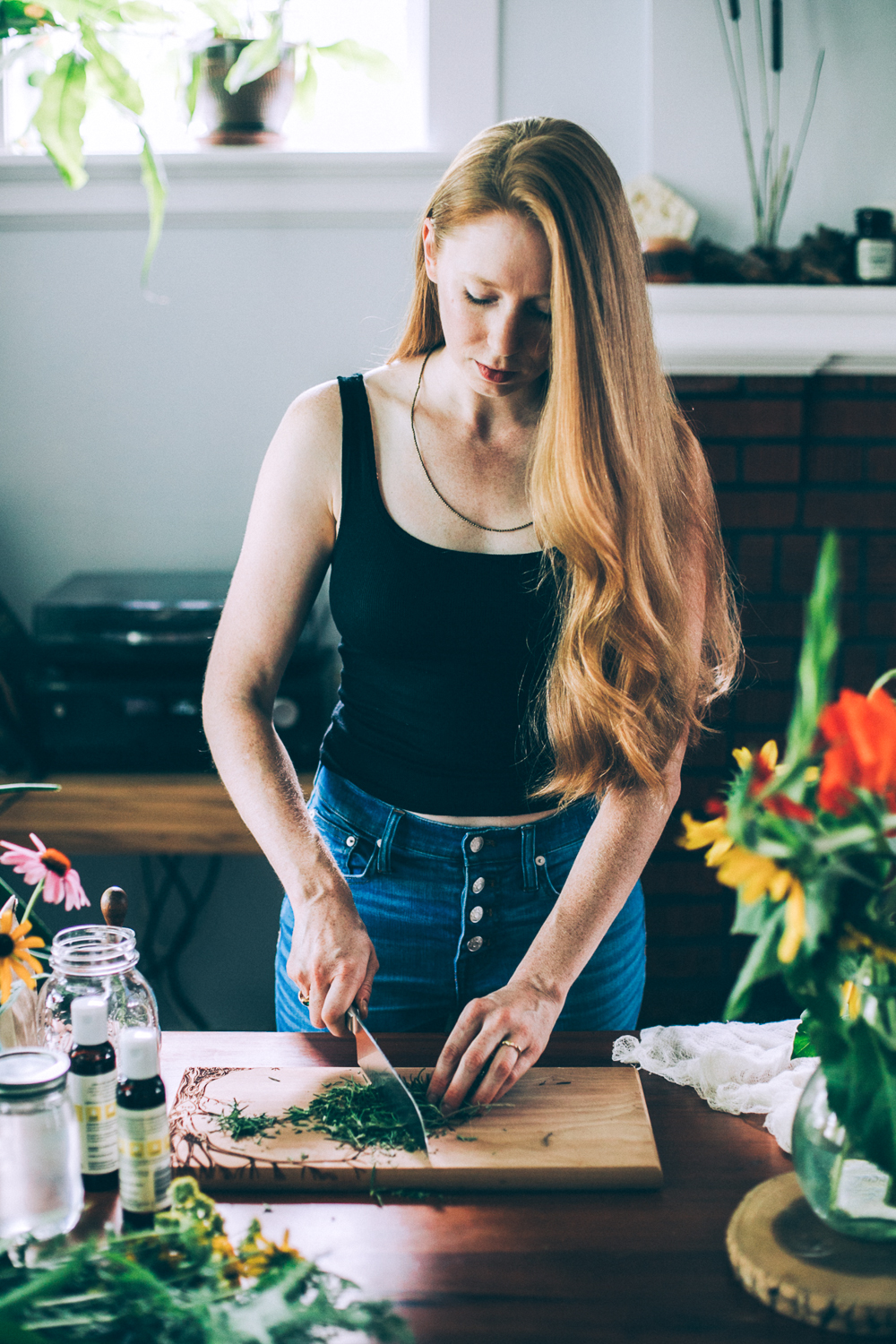
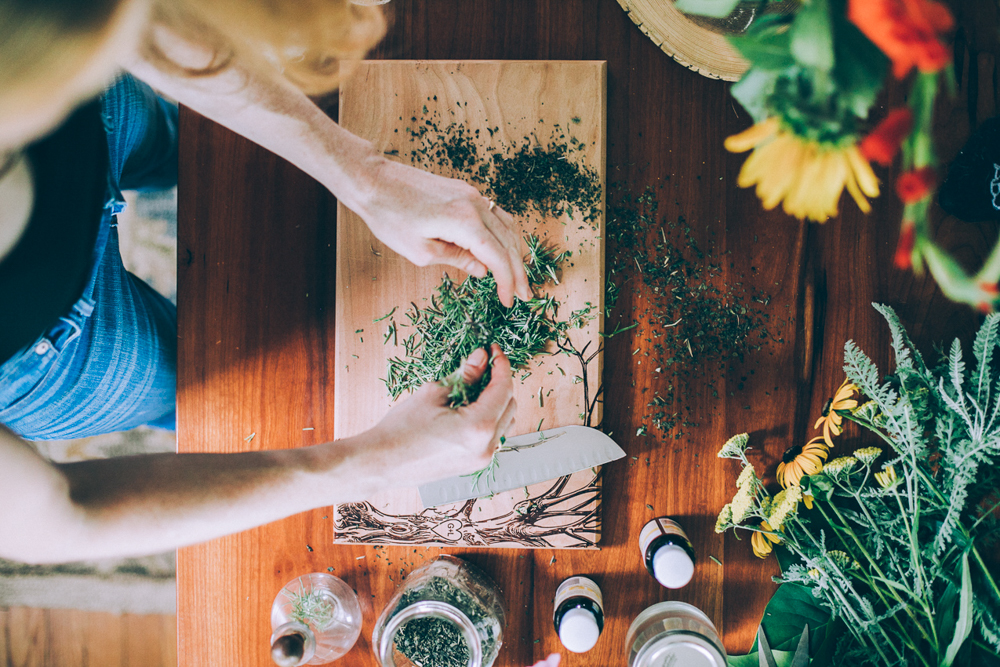
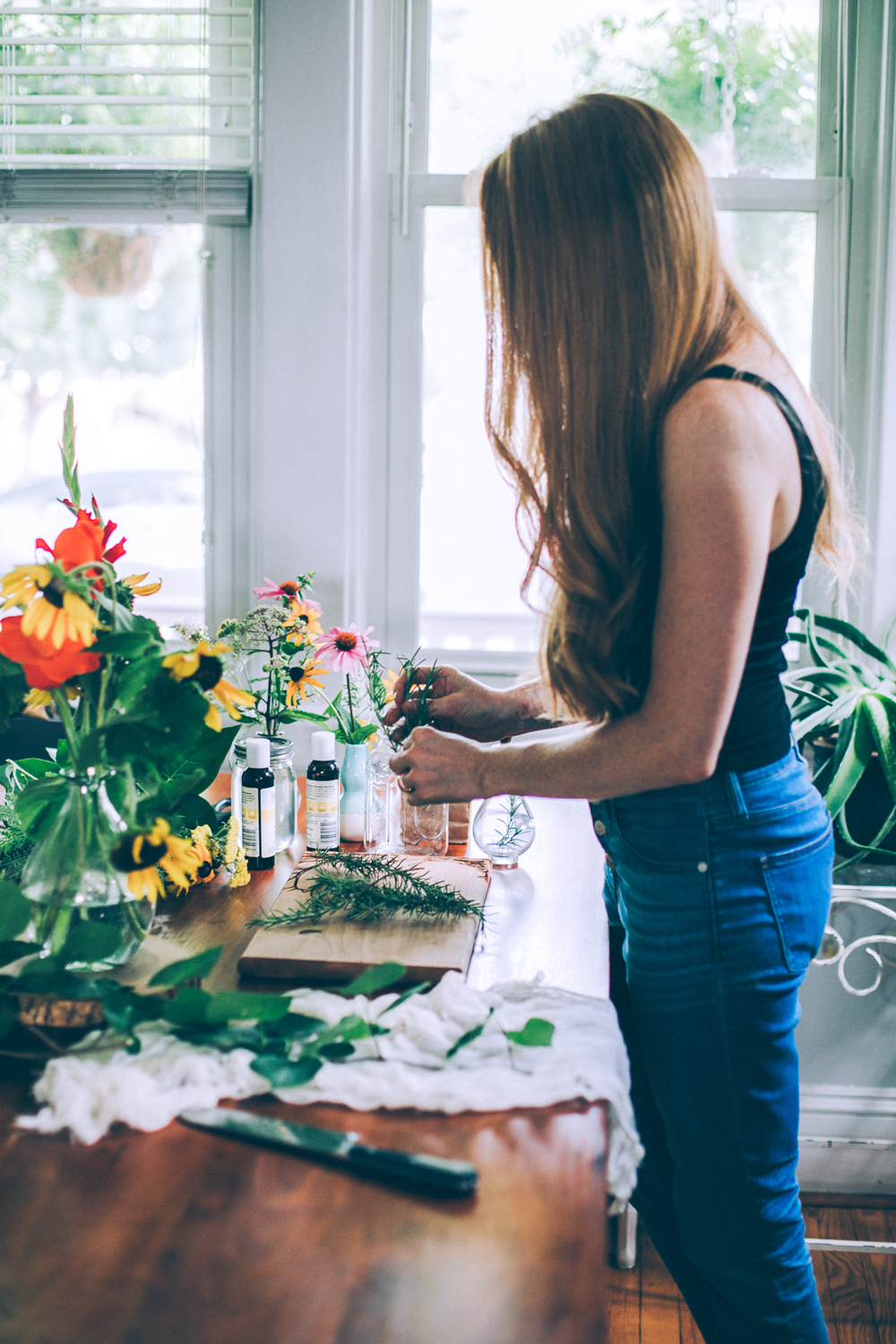
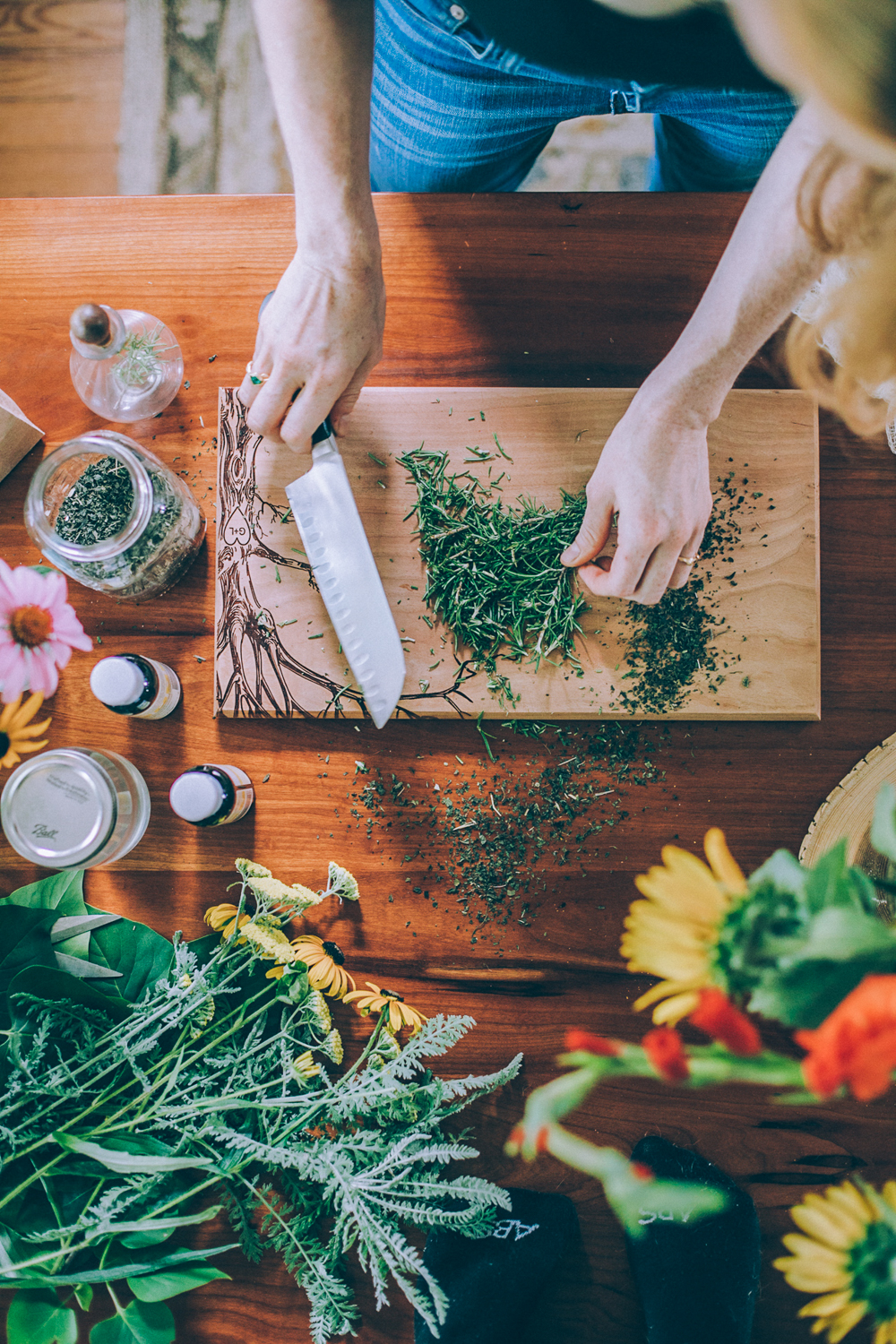
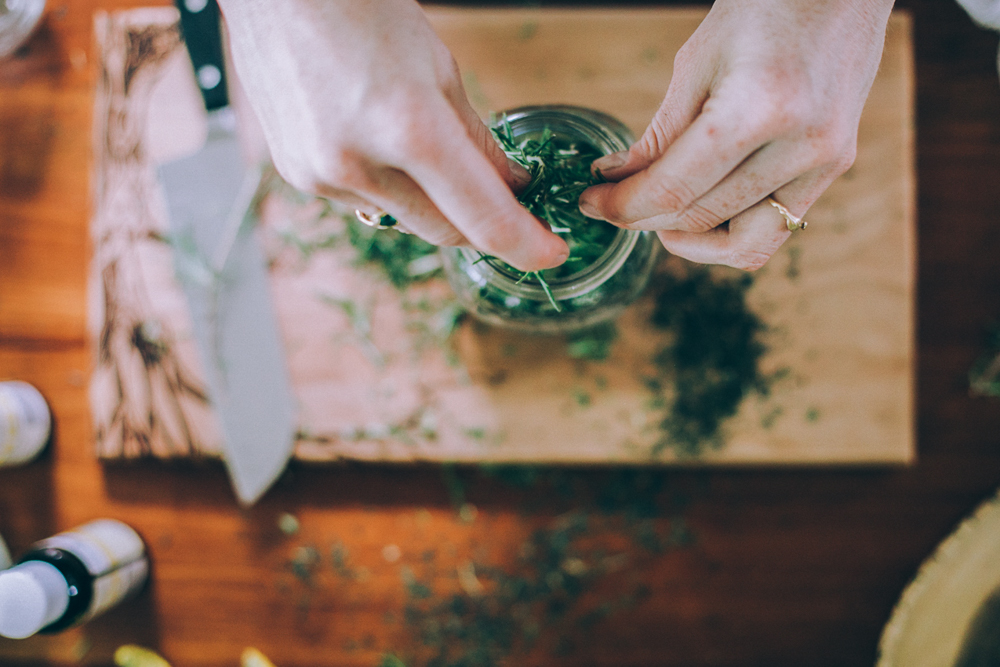
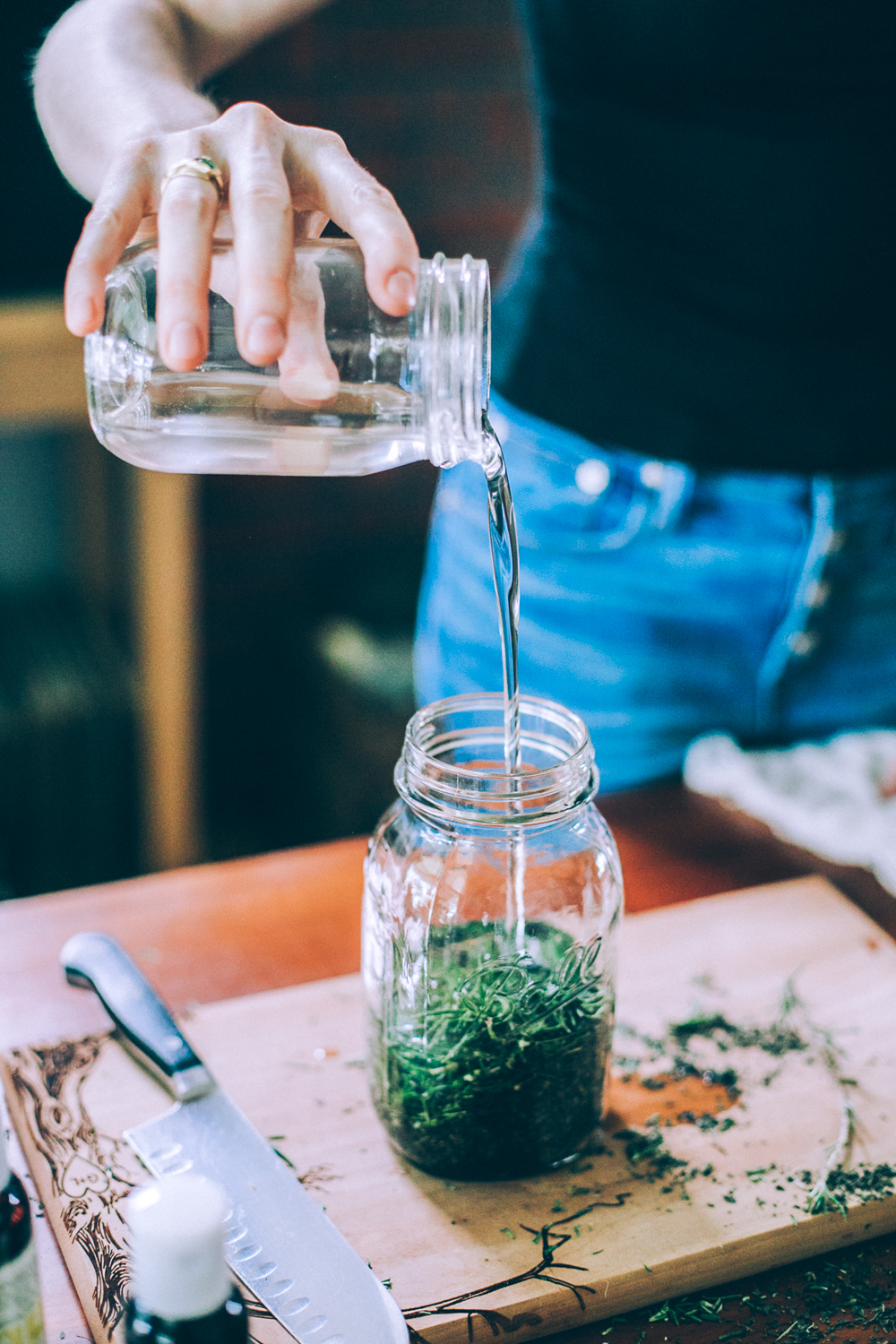
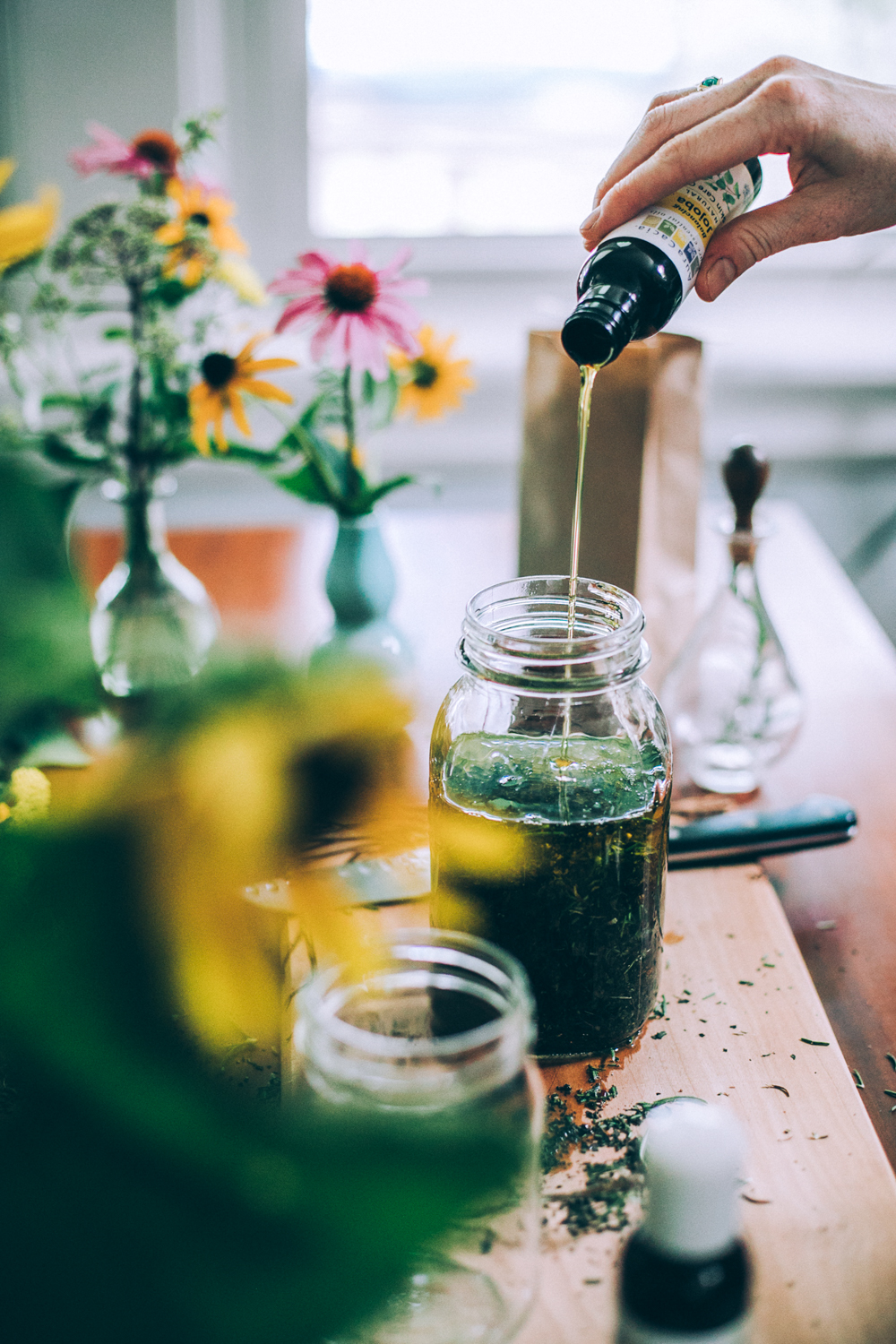
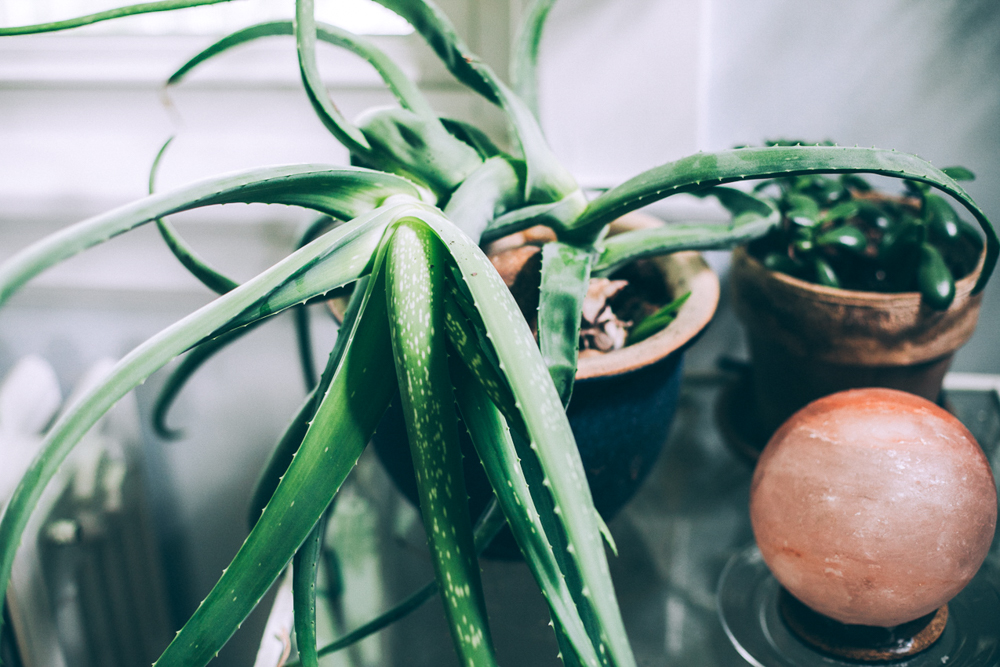
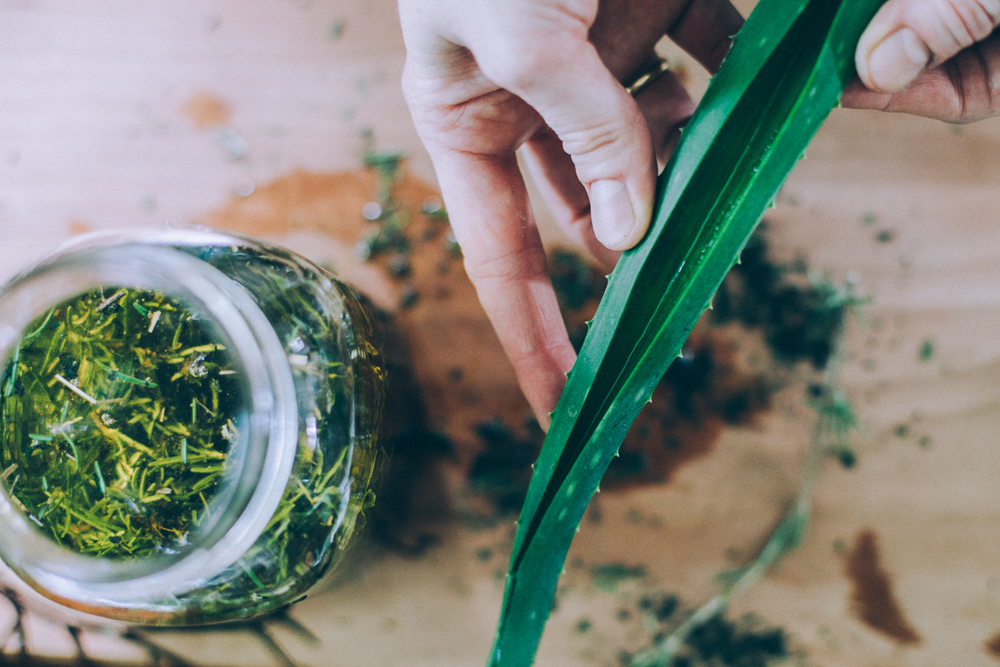
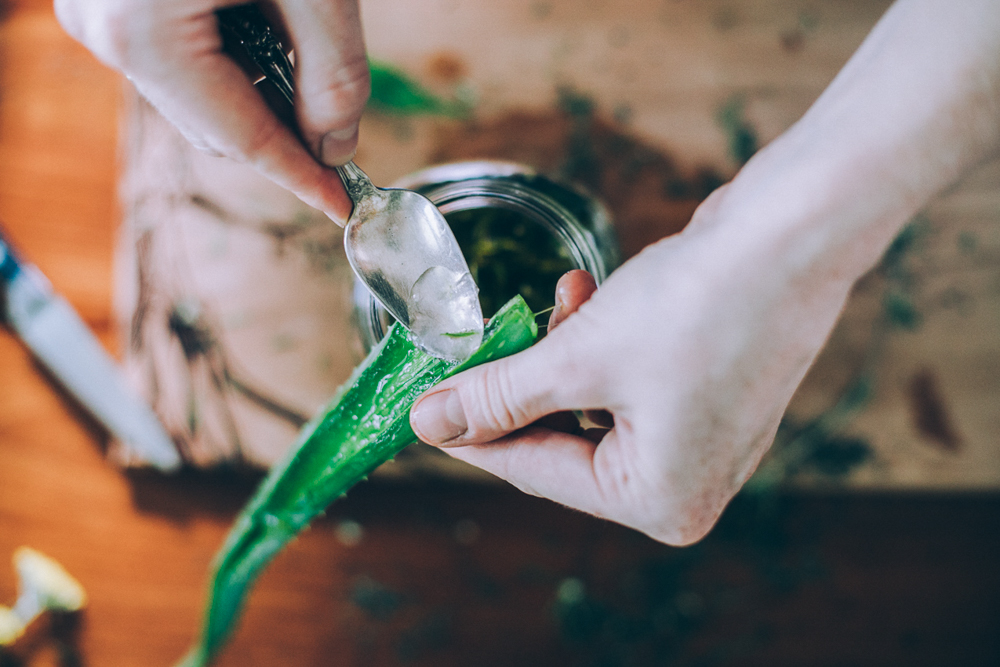
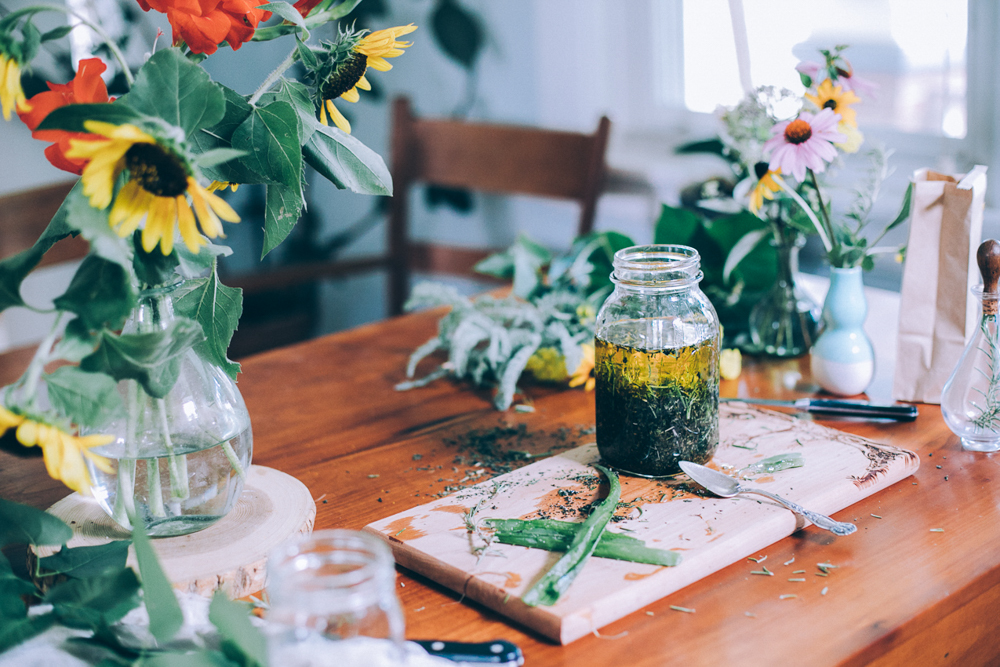
Solar infusions are my preferred way to let herbs infuse in oil, especially during the summer. Herbal oil infusions are SO luxurious and nourishing to use topically (like this calendula infused apricot kernel oil – a longtime favorite of mine!) when given enough time and moderate heat, most herbs extract beautifully in a carrier oil and have a relatively long shelf life. Once I prep my oil, I set it out in the garden for about two weeks and let the summer suns heat permeate through this formula, in a sense also infusing it with the essence of high summer.
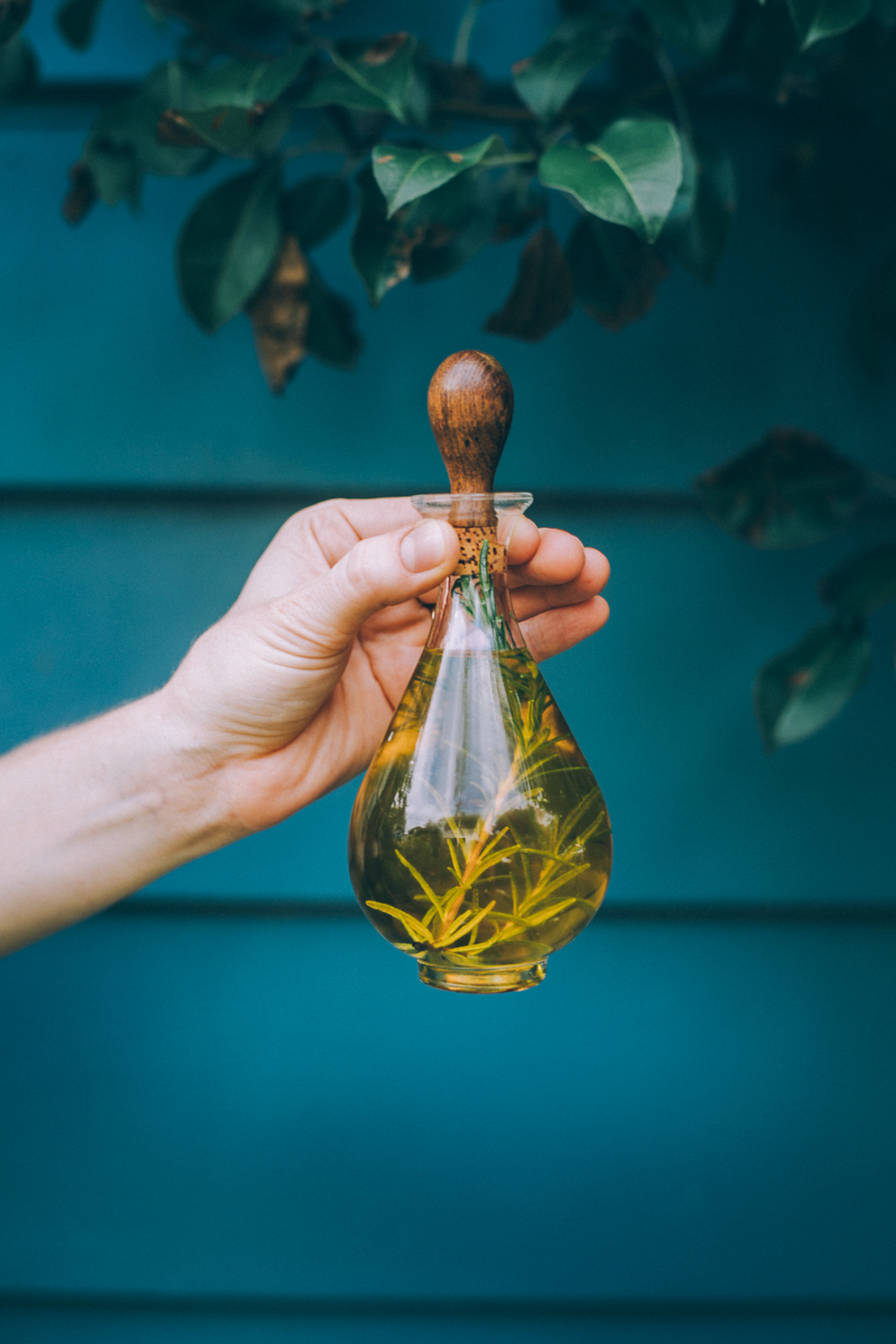
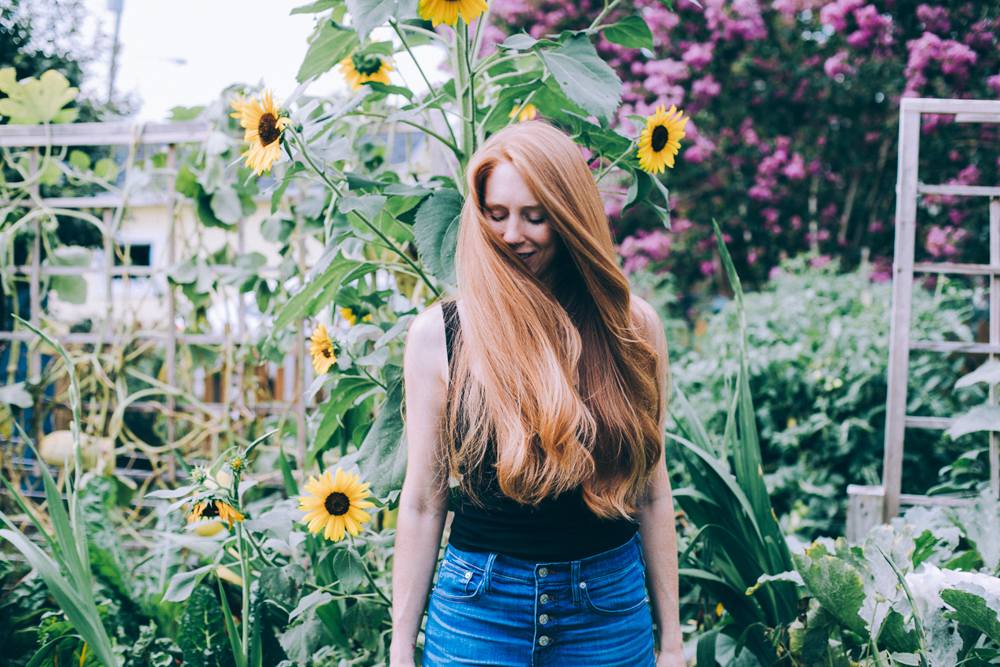
This is my base formula, always consistent and always effective. I sometime like to add various essential oils depending on what I’m feeling in the moment. Options include more rosemary, lavender, cedar, patchouli or, you know, whatever your favorites are. As always, play with it and make it yours. Try using different base oils if these don’t quite work for you. Sesame oil, olive oil and argan oils are also excellent to use too.
Photography by Renee Byrd
